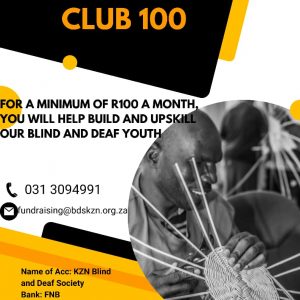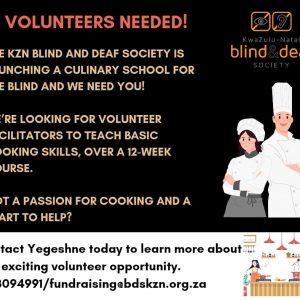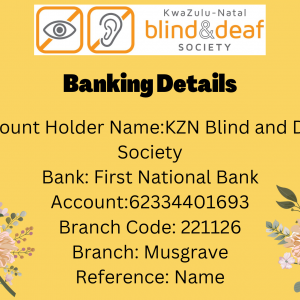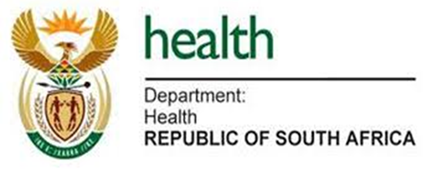Please verify the legitimacy of any raffle or lucky draw with our offices before participating. This helps protect you aganist scams.






About Us
The KwaZulu-Natal Blind And
Deaf Society Was Established
In 1936
The KwaZulu-Natal Blind and Deaf Society was established in 1936, their purpose, providing services and opportunities that ultimately improve the quality of life of Blind and Partially-Sighted people. During the 1960s we extended our services to the Deaf and Hard of Hearing people. The Society currently reaches the poor, unemployed African people living in rural areas who do not have the finances or ability to receive services. The greatest challenge that the Society faces, is how to improve these unfortunate individuals quality of life. The sad situation is that these almost forgotten people are not only deprived, but also disabled, which leaves them feeling very inadequate and incapable, and the sad fact is that most of them receive no external assistance

Vision Statement
To be the premier provider of services and opportunities that ultimately improve the quality of life of Blind, Deaf, Deafblind persons.

Mission Statement
Our Mission statement is to ensure that all Blind, Partially-Sighted, Deaf, Hard of Hearing and Deafblind people are integrated into the community, as members who contribute and benefit from society alongside their able- bodied counterparts who do not have these disabilities.

Arthur Blaxall School For The Blind
The school was established in 1954, and is currently situated in Pietermaritzburg, educating Partially Sighted and Blind learners.

V N Naik School For The Deaf
Established in 1983, the school is located in Inanda (Outer Durban), educating Hard of Hearing and Deaf learners and hosting children in the school's boarding establishment.
Our Services
Support Us
Should you wish to make a cash donation towards any of our projects, simply pay by EFT, or deposit directly into our Bank Account.














